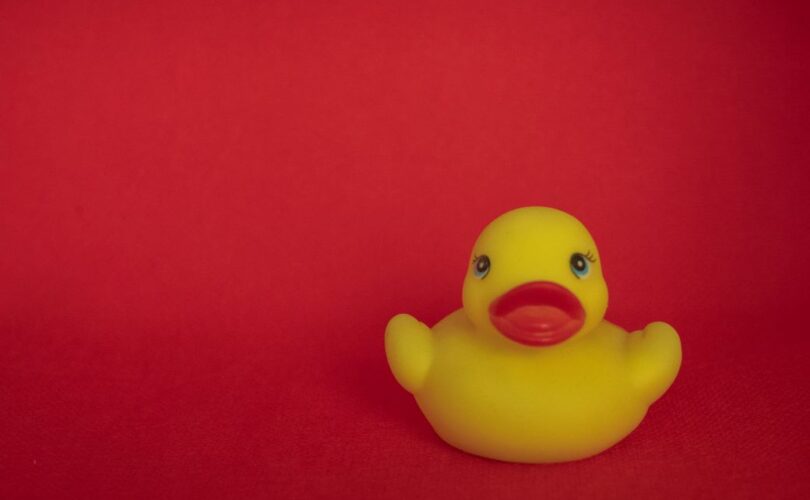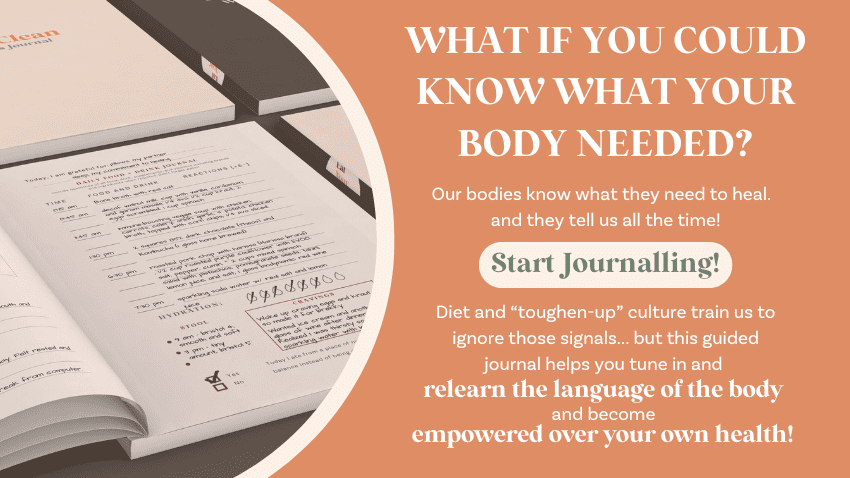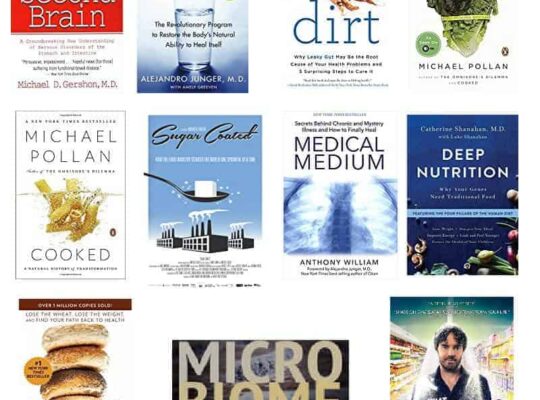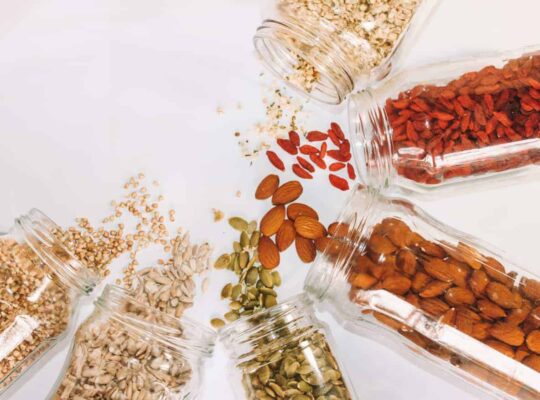Slow Death by Rubber Ducky, by Rick Smith and Bruce Lourie
A slight diversion from classic nutrition books, this book on environmental pollution that creates the “human toxome” is just as critical to understanding our overall human health in today’s modern world.
Just as much as the food we eat, the containers that food was stored in as well as the air we breathe and water we drink impact our health.
This book dives into 7 toxic chemicals we’re exposed to in common modern-day activities like cooking and eating and their impacts on the human body’s level of detectable chemicals.

In other words, how the toxins outside get absorbed into our bodies and what effects that has.
What’s crazy about this book is that the two authors exposed themselves to these chemicals and measured their own blood and urine levels to see how many of the chemicals made it from the external world to their inner world.
And, they did it using everyday activities.
No chugging a vial of chemicals needed.
Just simply cooking, watching TV, and playing with their kids were enough to overload their bodies.
Phthalates aka fragrances and rubbery materials
The first chapter focuses on phthalates which are often found in fragrances, perfumes, and rubbery plastics, hence the name of the book.
Think of smelly shampoo, that car air freshener, and rubber-like toys like the title rubber ducky.
Phthalates can cause fertility issues, birth deformities, obesity, infertility, allergies, asthma, thyroid malfunction, hormonal distress, and neurological issues. Quite a cocktail of issues!
PFOS, PFCs or Polyflourine carbon chains
The long-chain carbons are very stable and persistent, which means they are great at repelling water but also never break down. PFCs are found in Teflon, stain preventers, and waterproof clothes like Gore-Tex.
This book shows its age in this chapter with the highlight on the PFOA and PFOS investigations in Parkersburg, WV where DuPont had a Teflon plant.
People there experienced higher levels of disease, cancers, birth defects, tooth decay, and liver issues due to the PFOA leaking into the water system.
We now know that the public health investigation has wrapped up and they did find a potential link from PFOA to health issues for which DuPont is now financially responsible. However, it’s a small amount of DuPount’s Teflon sales that will go to a small group of people heavily impacted.
What’s more problematic is that most living things across the globe test positive for these PFCs.
Want to learn more? Watch Dark Waters with Mark Ruffalo playing the lawyer who fought to win settlements and protect the people of Parkersburg from contaminated and toxic water.
Where to learn more
Dark Waters: a movie about the PFC investigation and trial against DuPont.
Environmental working group: find safer products that can replace products high in these toxic chemicals.
Book Club Questions
- Does chapter one’s stories of past pollution make you think differently about pollution and the Clean Air and Water Act?
- How did you define pollution before reading this book? How would you define it afterward?
- Were you surprised that daily activities can expose you to these chemicals? Does it change the way you look at the companies making these or the people working in the factories to make them?
- Have you changed any of your daily habits after reading this book?
- Had you already known about the dangers of some of these chemicals? What changes had you made before reading this book based on your prior knowledge?
- Were you surprised to see how the EU, Canada, and the US treat these differently?
- Does this change how you think about regulations? Do you think our system could benefit from changes and if so, what would you change?
- Which of these chemicals are you exposed to most?
- What do you think the role of chemical companies is in protecting the health of humans, animals, and the planet?
- Have you or has anyone in your family had any illnesses that you think might have been impacted by these chemicals?
- When you use the EWG app to evaluate your home products and foods, how many of them score well, and which ones score poorly? Is this information enough for you to change your habits and buy differently?







